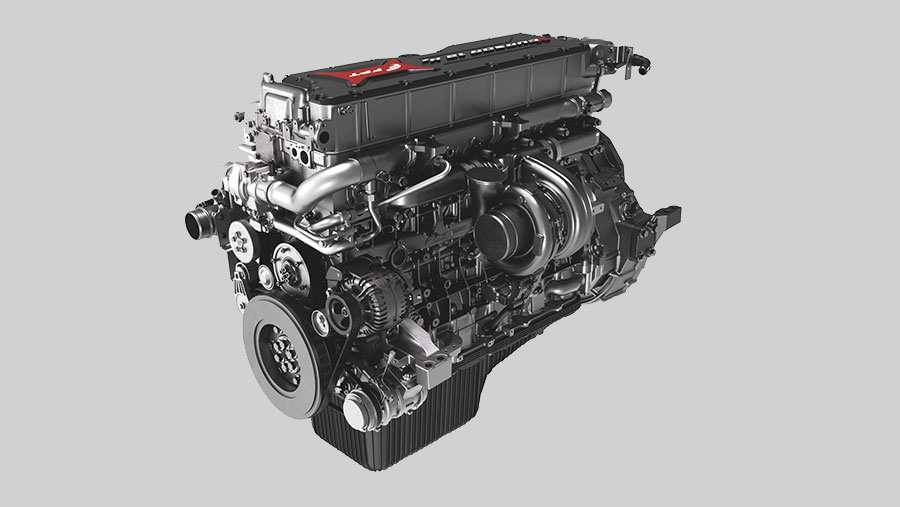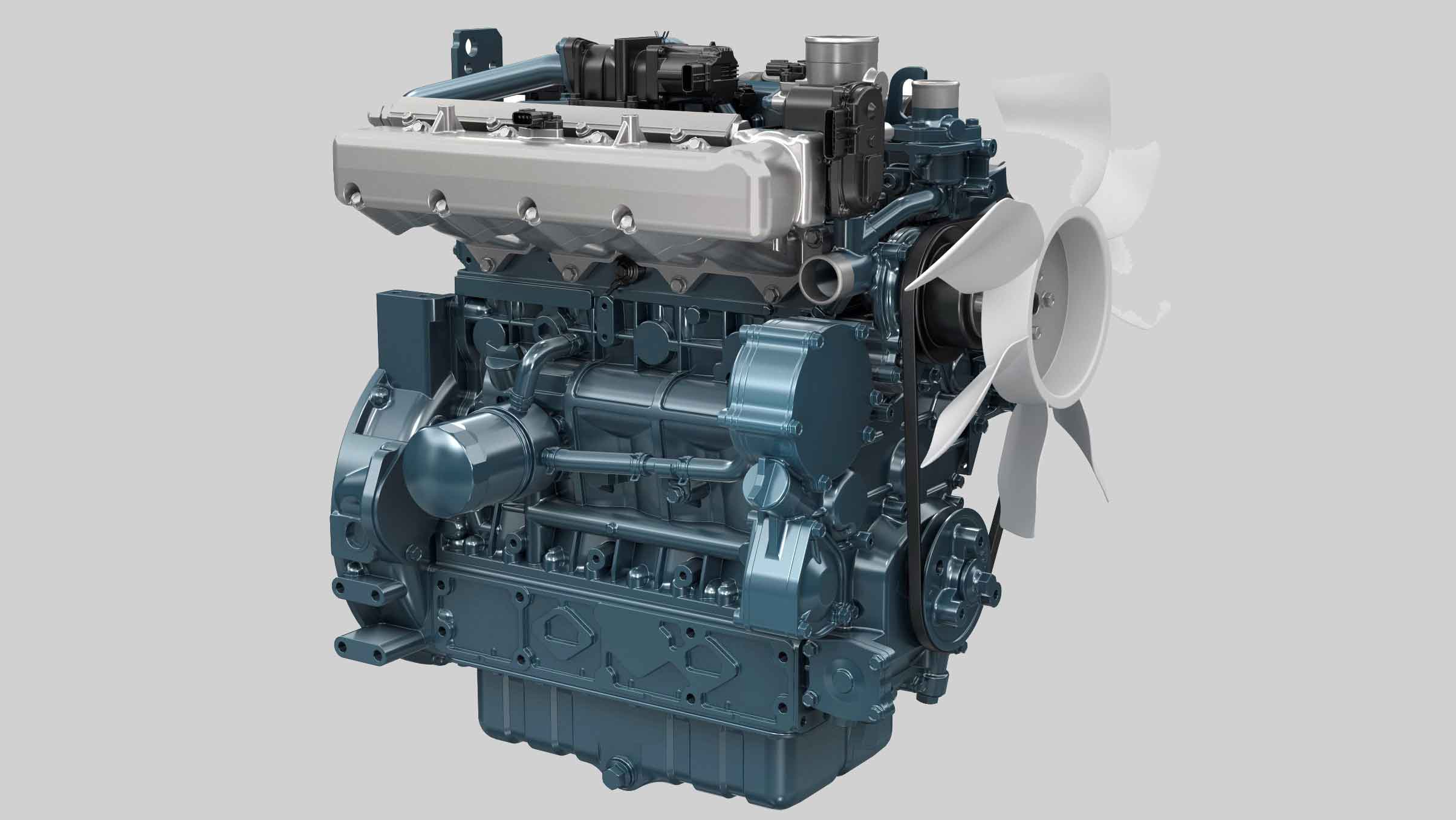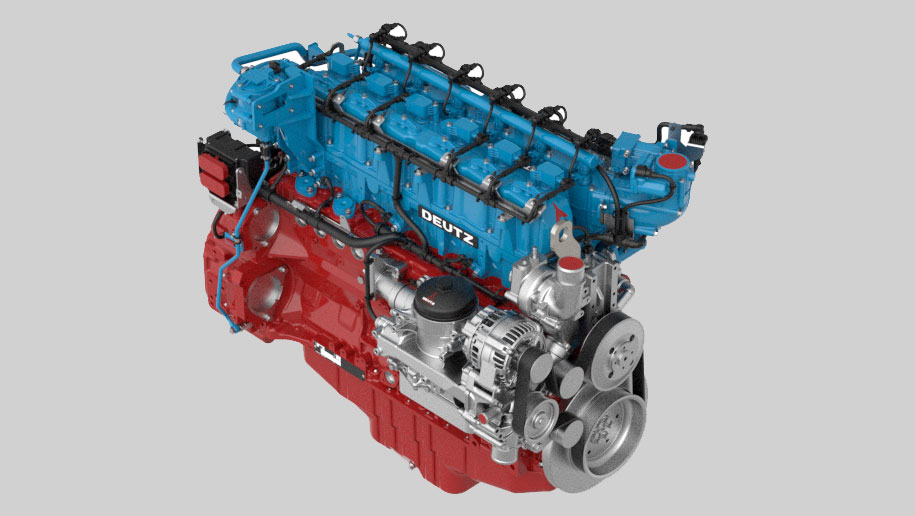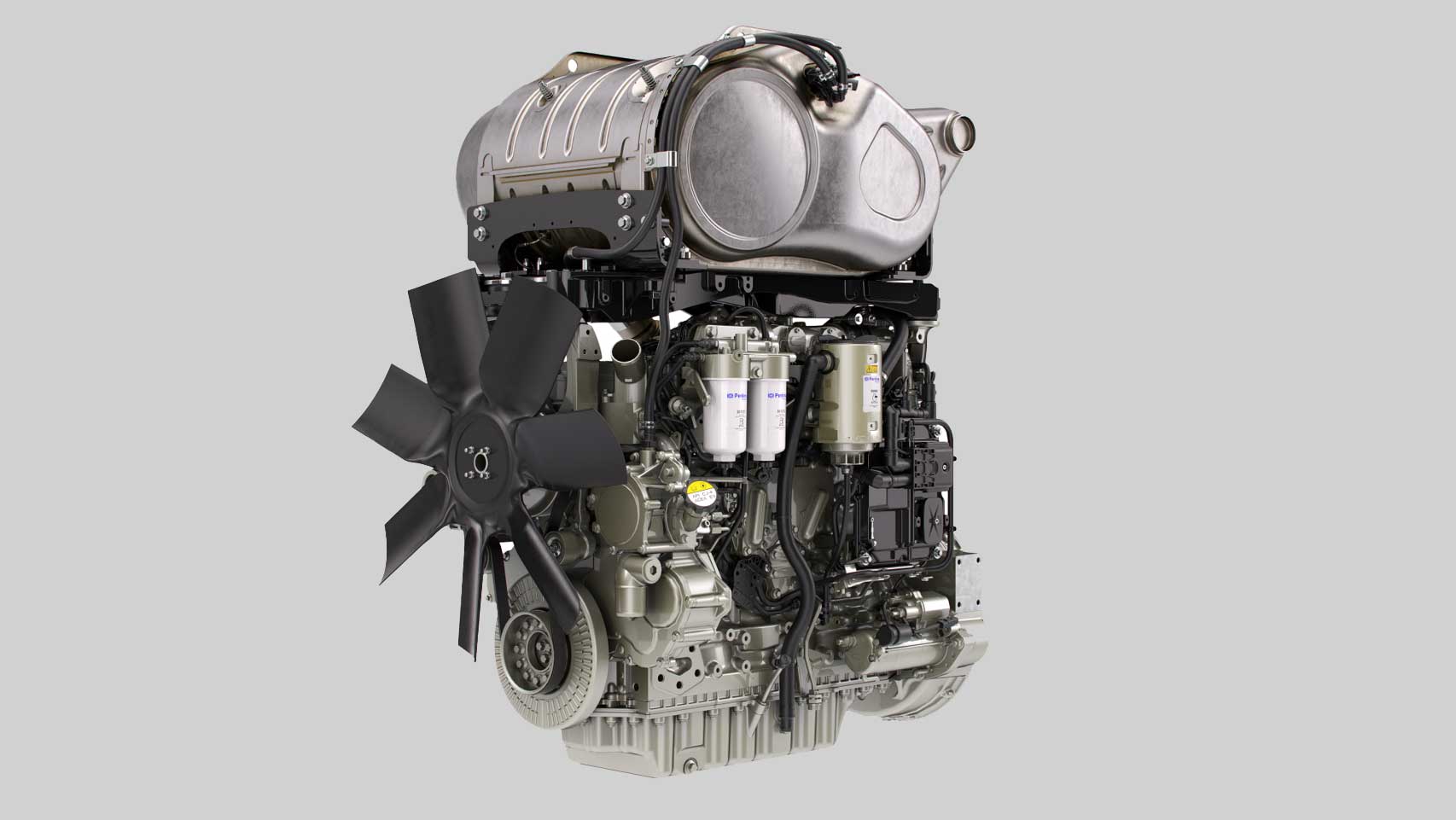Big tractor engine makers bet on hydrogen as future fuel
 Harvester engine – FPT’s hydrogen-fuelled XC13 H2 © FPT
Harvester engine – FPT’s hydrogen-fuelled XC13 H2 © FPT Momentum for a future switch from diesel to hydrogen for fuelling tractors and other agricultural machines is gathering pace with the announcement of further H2-ready engines from leading manufacturers.
The companies recognise the strong potential for hydrogen gas as a replacement for diesel that would maintain demand for internal combustion engines – albeit with spark ignition – and production infrastructure.
Dealers and end-users would also benefit from a familiar power unit in terms of servicing, maintenance and spares.
See also: How close is hydrogen to being a viable farm machinery fuel?
At Agritechnica last November, Cummins pitched into the hydrogen debate with the B6.7H, the result of a hydrogen engine project led by engineers at the firm’s Darlington factory.
It is based on a next-generation platform that will also spawn EU Stage 6/US Tier 5-compliant diesel engines.
The 6.7-litre six-cylinder hydrogen-fuelled version has a peak output of 290hp and 1,200Nm of torque. It is part of a strategy that includes manufacturing Accelera by Cummins electrolysers for “green” hydrogen production, and high-pressure hydrogen fuel tanks for off-road vehicles.
Meanwhile, FPT Industrial revealed the XC13 H2, a 13-litre six-cylinder engine for harvesters and the biggest tractors and industrial machines. A concept snow groomer is one application being trialled – the engine, in this case, being tuned for outputs of 460hp and 2,000Nm of torque.
FPT produces more than 100,000 engines a year for agricultural applications and is exploring all fuel options, with the XC13 having a common core before being optimised for several alternatives to diesel.
Kubota, Deutz and JCB
Kubota’s spark ignition engine, the 3.8-litre WG3800, is a four-pot block based on an existing design, and develops up to 114hp. It is part of a wider programme developing engines for a variety of bio, synthetic and other decarbonised fuels.
Like its rivals, Kubota emphasises the benefits to vehicle manufacturers of developing hydrogen gas engines, with the same footprint, power take-off and ancillary locations as existing diesels for ease of transition on the production line.

Kubota’s WG3800 spark-ignition four-cylinder engine © Kubota
That is also the case with the six-cylinder Deutz TCG 7.8 H2, which the power specialist plans to start making in volume towards the end of this year.
Capable of producing up to 295hp and based on an existing design, the engine is said to be “very quiet” and carbon neutral.
First commercial applications are likely to be for static installations such as gensets – a small-scale run of 100 units has been ordered by a customer in China for that use.

New Deutz TCG 7.8 H2 six-cylinder engine for production in 2024 © Deutz
At JCB Power Systems, in Derbyshire, more than 75 examples of the four-cylinder, 4.8-litre AB448 H2 engine have been assembled as the design continues to undergo wide-ranging validation tests.
Configured to develop the same power and torque as its diesel-fuelled cousin, two examples have been slotted into a mid-size van and a 7.5t truck to illustrate the engine’s usability, in addition to powering a prototype backhoe-loader and a telescopic handler.

Perkins 7-litre 1200 Series set for hybrid electric power and hydrogen © Perkins
Perkins Engines, meanwhile, is focused on developing a six-cylinder, 7-litre 200-series to show the potential for 60-335hp hybrid power units using hydrogen gas and an integrated electric motor.
Project Coeus, an initiative with £11.1m of UK government funding, involves Norfolk-based Equipmake and its power-dense electric powertrain technology, and Loughborough University’s expertise in advanced engine analytics and emissions control.

